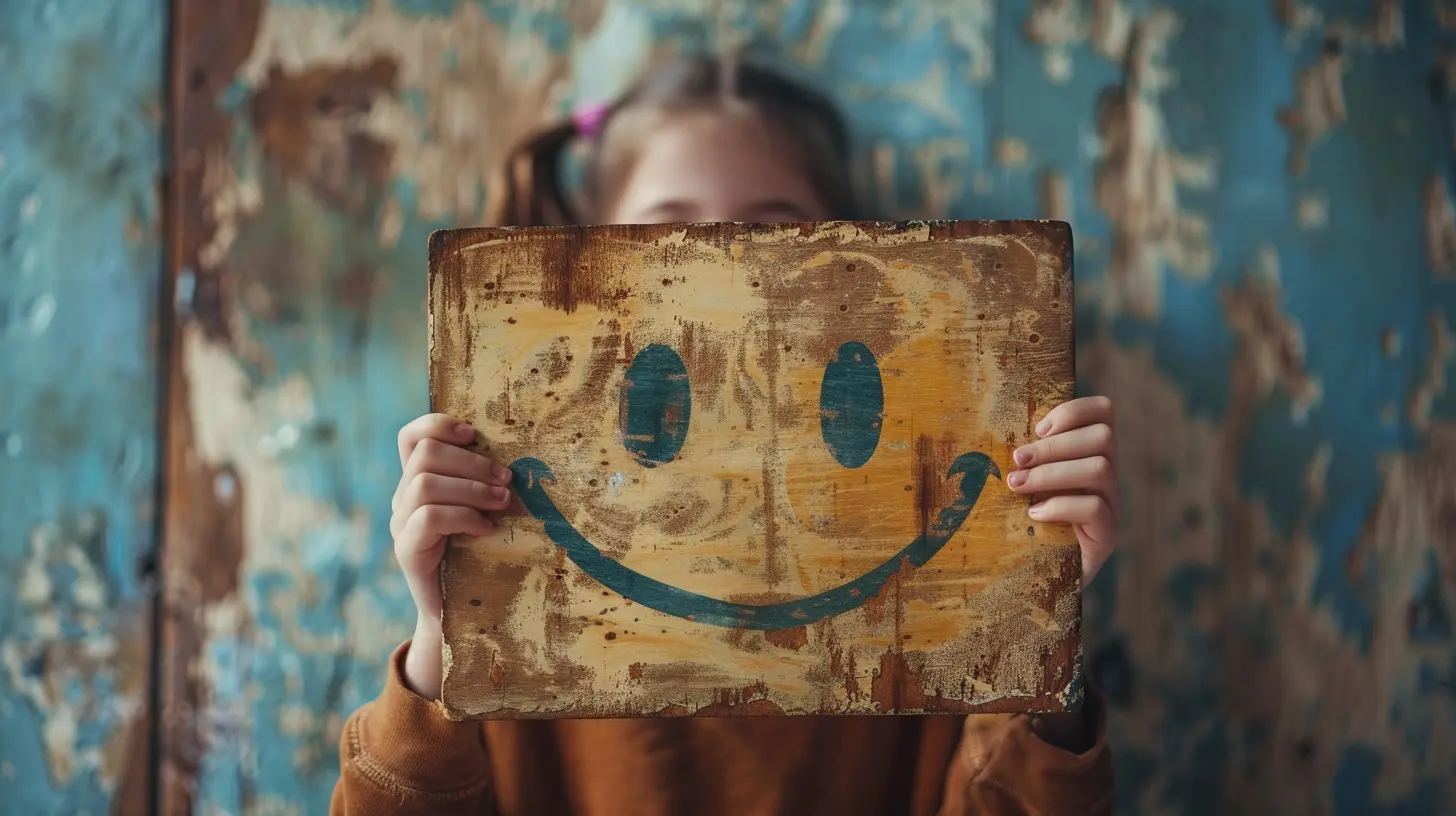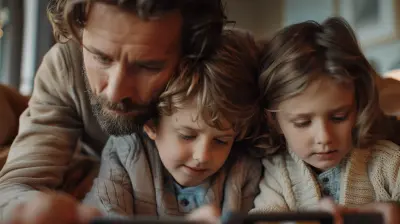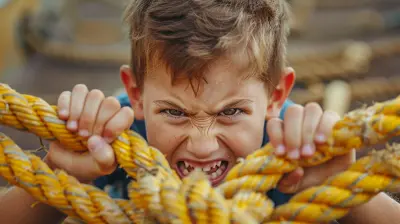How Positive Reinforcement Shapes a Child’s Self-Esteem
3 May 2025
Introduction
Ever wondered why kids beam with pride when they’re praised for a good deed? That’s the magic of positive reinforcement at work! As parents, we all want our children to grow up feeling confident, valued, and ready to take on the world. But how exactly does positive reinforcement help shape a child’s self-esteem? Buckle up, because we’re diving into the science, psychology, and everyday practicality of this game-changing parenting technique. 
What is Positive Reinforcement?
Before we get into the nitty-gritty, let’s break it down. Positive reinforcement is all about rewarding good behavior to encourage its repetition. Sounds simple, right? It can be anything from a high-five, a verbal affirmation like “Great job!”, or even a small reward (yes, sometimes a sticker chart can work wonders).Think of it this way: Kids are like little scientists, constantly experimenting with their behavior to see what sticks. When they receive positive feedback for something they do well, their brains go, “Oh! That was good. Let’s do that again!” It’s the same reason why a dog wags its tail when given a treat for sitting on command. (Okay, kids are far more complex, but you get the idea!) 
The Link Between Positive Reinforcement and Self-Esteem
So, how does this whole reinforcement thing help with self-esteem? Well, self-esteem is essentially how a child perceives their own worth. When kids feel competent, valued, and capable, their confidence skyrockets.When we focus on their strengths and efforts, rather than just dwelling on mistakes, kids learn to believe in themselves. Instead of being afraid to try new things, they approach challenges thinking, “I’ve got this!”
How Positive Reinforcement Builds Self-Worth
- Validates Their Efforts – Kids need to know that their actions matter. A simple “I love how hard you worked on that puzzle” reinforces persistence.- Encourages Independence – When rewarded for taking initiative, kids feel empowered to make decisions on their own.
- Teaches Resilience – When praise is centered around effort rather than just results, children learn that trying hard is what truly counts.
- Reduces Fear of Failure – They see mistakes as learning opportunities rather than reasons to give up.

The Do’s and Don’ts of Positive Reinforcement
Not all praise is created equal! While the right kind of reinforcement can boost self-esteem, the wrong kind can backfire. Here’s what you should keep in mind:✅ DO: Praise the Effort, Not Just the Outcome
Instead of saying, “You’re so smart!” say, “I love how you kept trying until you figured out that math problem!” This teaches kids that persistence is valuable rather than just raw talent.✅ DO: Be Specific
A vague “Good job!” is nice but lacks impact. Try: “I love how you helped your little brother clean up without being asked. That was really kind of you!”✅ DO: Use Non-Material Rewards
Rewards don’t always have to be toys or treats. A simple hug, extra storytime, or just a “Wow, I’m so proud of you!” is often more meaningful.❌ DON’T: Overpraise
Kids are smart—they can tell when you’re just throwing compliments around. Over-the-top praise like “You’re the BEST artist in the whole world!” might feel good at first, but it can lead to performance pressure and unrealistic expectations.❌ DON’T: Offer Praise for the Wrong Reasons
If a child completes a task half-heartedly or insincerely, praising them can teach them that minimal effort is enough. Instead, focus on encouraging genuine effort.
Real-Life Examples of Positive Reinforcement
Let’s put this into perspective with real-life scenarios:🎨 The Little Picasso
Your child brings you a crayon drawing. Instead of just saying, “That’s amazing!”, try:👉 “Wow, I love the colors you used! You put so much thought into this drawing.”
This focuses on their efforts and creativity, not just the final product.
📚 The Homework Hustle
Your child sits down to work on their homework without being told. Instead of offering a reward, try:👉 “I really appreciate how responsible you are with your homework. That’s an awesome habit!”
This reinforces that responsibility is valuable and encourages consistency.
🏅 The Team Player
Your child shares a toy with a sibling without prompting. Point it out with:👉 “That was really thoughtful of you to share. It makes everyone feel happy when we play together!”
This teaches kids that kindness and sharing are rewarding in themselves.
The Role of Positive Reinforcement in Emotional Development
Beyond self-esteem, positive reinforcement plays a huge role in emotional intelligence. Kids learn not only to feel confident but also to:- Regulate their emotions – When kids receive positive feedback for managing big feelings in a healthy way, they learn self-control.
- Develop empathy – When praised for kindness or helpfulness, children understand the value of compassion.
- Handle social situations better – Positive reinforcement teaches kids important social skills, like cooperation and patience.
It’s not just about building confidence—it’s about helping kids become well-rounded, emotionally intelligent individuals.
Common Challenges and How to Overcome Them
❓ “What if my child starts expecting praise for everything?”
This is a common concern, but the solution is balance. Gradually reduce praise for basic tasks and focus on new challenges. Shift from external validation to intrinsic motivation. Instead of saying, “I’m proud of you,” encourage self-reflection with:👉 “You worked really hard on that—how do you feel about your progress?”
❓ “What if my child doesn’t seem to respond to positive reinforcement?”
Every child is different! Some kids prefer verbal praise, while others respond better to physical affection (hugs, high-fives) or token systems (stickers, small rewards). Experiment and see what works best.❓ “Can too much positive reinforcement make kids entitled?”
Great question! If we only reward children without teaching responsibility, it can create entitlement. That’s why it’s important to reinforce positive behavior consistently, while also setting boundaries and expectations.Final Thoughts
Positive reinforcement isn’t about spoiling kids with praise—it’s about helping them see their own worth. When done right, it nurtures self-esteem, encourages resilience, and helps children develop into confident, capable individuals.So next time your little one does something great, take a moment to appreciate their effort and reinforce their growth. A few simple words of encouragement today can shape a lifetime of confidence tomorrow.
all images in this post were generated using AI tools
Category:
Building Self EsteemAuthor:

Liam Huffman
Discussion
rate this article
4 comments
Anika Jordan
Great insights on the impact of positive reinforcement! It's inspiring to see how these techniques can truly boost a child's self-esteem.
May 8, 2025 at 2:25 PM

Liam Huffman
Thank you! I'm glad you found it inspiring and valuable. Positive reinforcement really can make a significant difference in a child's development!
Gisela McGuffey
This article beautifully highlights the power of positive reinforcement in nurturing a child’s self-esteem. By celebrating their achievements, no matter how small, we empower our children to grow confident and resilient. Let's keep fostering their incredible potential!
May 8, 2025 at 3:28 AM

Liam Huffman
Thank you for your thoughtful comment! I'm glad you found the article resonates with the importance of positive reinforcement in building children's confidence and resilience.
Teagan Brooks
This article beautifully highlights the power of positive reinforcement. It’s inspiring to see how small affirmations can nurture a child’s self-esteem.
May 6, 2025 at 2:19 PM

Liam Huffman
Thank you for your kind words! I'm glad you found the article inspiring. Positive reinforcement truly makes a significant difference in a child's development.
Icarus Ramos
Absolutely loved this! Positive reinforcement really does wonders for our little ones. It's amazing how a few kind words can boost their confidence and happiness!
May 5, 2025 at 4:06 AM

Liam Huffman
Thank you! I’m glad you enjoyed the article. Positive reinforcement truly has a powerful impact on children's self-esteem and overall well-being!



